I have a memory pool which is a set size and is split into segments of a given size. When I delete some data it flags the segments that data was using as free. Next time I try to allocate memory but don't have space, I realign the memory by shifting all the data down (e.g. First 2 segments are cleared, move all data down by 2 blocks). This all works fine but my issue is my pointers to that data don't change and I am not sure how I can go about doing this.
I allocate memory from my pool by returning a void* to the space in memory, lets assume my pool is the size to hold 2*sizeof(Data).
Data* poolTest = new(pool->GetMemory(sizeof(Data))) Data(5, 5, 5);
So the pool has no reference to the pointer poolTest.
So now if I do this:
pool->Free(poolTest);
Data* poolTest2 = new(pool->GetMemory(sizeof(Data))) Data(4, 5, 5);
Data* poolTest3 = new(pool->GetMemory(sizeof(Data))) Data(3, 5, 5);
The creation of poolTest3 triggers a realignment of memory and now poolTest2 points to the same address as poolTest3 and poolTest1 points to the address that poolTest2 should point to.
I might just be missing something, or my structure is screwed up but I am really stuck on this.
